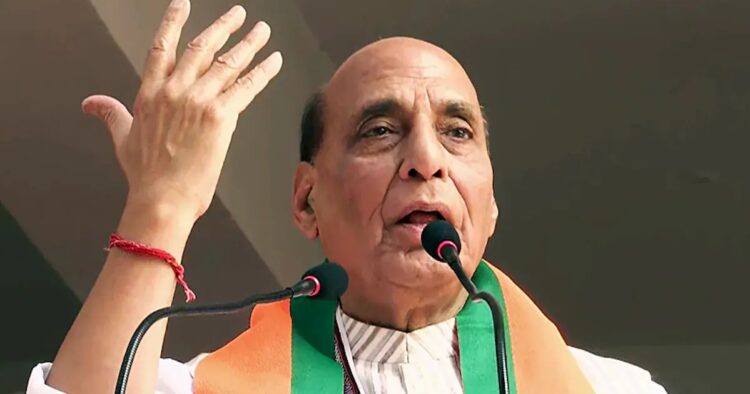In an address at an election rally in Bihar’s Karakat Lok Sabha constituency, Defence Minister Rajnath Singh raised concerns about the surplus food grains distributed under the Centre’s free ration scheme. He noted that some beneficiaries were receiving more than they could consume, leading them to sell the excess in the market.
Singh highlighted the provision of five kilograms of food grains per person in eligible families, emphasizing that surplus amounts were being sold off, particularly by households with sufficient resources.
Singh underscored that the provision of welfare measures by the BJP-led central government was not a matter of doing favors but a commitment to serving the people. He reiterated the government’s dedication to the welfare of citizens, dismissing the notion of benevolence in its actions.
Citing statistical data, Singh emphasized Bharat’s remarkably low food inflation rate compared to other countries worldwide. He pointed out that India’s food inflation stood at 2.91%, contrasting it with higher rates in countries like the United States (7.79%), France (19%), Australia (8.5%), Pakistan (48%), and Sri Lanka (21%).
The Pradhan Mantri Garib Kalyan Anna Yojana (PMGK-AY), introduced in March 2020 amid the Covid-19 pandemic, aims to provide free food grains to the poor.
Under this scheme, the central government allocates five kilograms of free food grains to eligible individuals, in addition to the subsidized grains provided through the National Food Security Act (NFSA) under the Public Distribution System (PDS). The quantity and type of food grains distributed may vary under the scheme.
PMGK-AY forms part of the Atmanirbhar Bharat initiative, designed to supply free food grains to migrants and economically disadvantaged individuals. The scheme seeks to alleviate hunger and ensure food security among vulnerable populations, particularly during times of crisis such as the Covid-19 pandemic.
However, concerns have arisen regarding the surplus distribution of food grains among beneficiaries, prompting discussions on the optimization of resources and the prevention of misuse.

















Comments